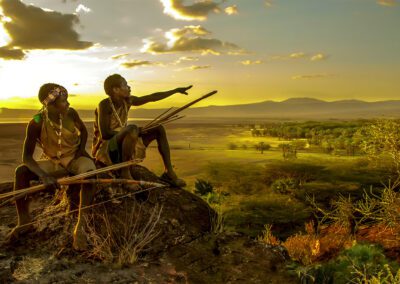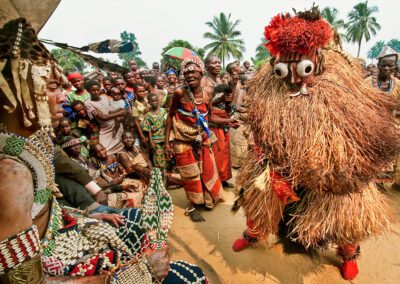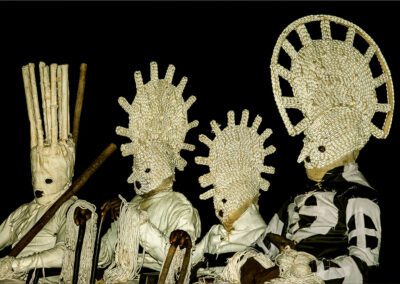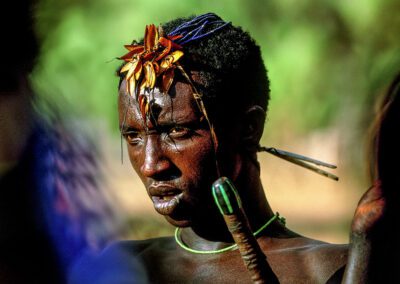Carol Beckwith and Angela Fisher: Guest photographer 2023
Carol Beckwith and Angela Fisher have been photographing the rituals and ceremonies of Africa for over 45 years, travelling to 40 African countries and visiting more than 150 ethnic groups. They are among the most famous photographers in the field of African cultural traditions. Today over 40% of the rituals and ceremonies they photographed, no longer exist.
They have produced 17 large format books and their photographs have been published in international magazines such as National Geographic and can be seen in exhibitions in museums and galleries worldwide. In addition to their photographic work, which now comprises more than half a million photographs and negatives, they also produced a number of films.
Their double volume, “African Ceremonies” (1999), a pan-African study of rituals and passages from birth to death, won the United Nations Award of Excellence for “vision and understanding the role of cultural traditions in the pursuit of world peace“.
Their most recent publication, African Twilight: The Vanishing Rituals and Ceremonies of the African Continent (2018) is a 15 year study completing the cycle of Carol and Angela’s African Ceremonies series. This 872 page double volume journeys deeper than ever before into some of the most inaccessible corners of the continent, recording ceremonies that have rarely been seen in the outside world.
Established by Carol Beckwith and Angela Fisher in 2004, their charitable foundation, African Ceremonies Inc. seeks to preserve the strength, essence and creativity of African cultures, for the education of future generations, and to assist the communities with whom they have worked.
During the pandemic, Angela and Carol dedicated their time to creating the Africa Online Museum in collaboration with Wurzburg University, Germany, to bring their work on traditional African cultures to students and lovers of Africa worldwide.
website: www.africanceremonies.com
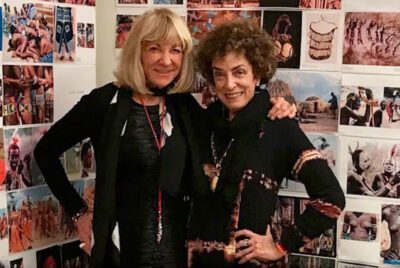
Godfried Agbezudor, a Ghanaian Voodoo initiate, guided us into the spirit world of West Africa. We spent a month traveling with him through the dry savannah of Burkina Faso, attending masquerades around harvest time. Each village we visited had its own distinctive style of mask, but they all channelled spirits that gave the maskers superhuman strength to perform. Among the Bwa, a division of the Bobo, masks featuring carved wooden animal heads and flamboyant raffia bodies embodied the powerful forces of snakes, crocodiles, chameleons, bulls, and antelopes.
Blacksmiths are responsible for the making of the mask. In some, the wooden heads take the form of multi-storied planks and are called plank masks. Others have smaller heads with emphasis on flamboyant raffia bodies that sweep the land and rid the village of evil spirits
The most ancient style of masks we saw were ten feet tall and made from hundreds of fresh leaves topped with crests of straw, millet stalks, or hornbill feathers. These feats of craftsmanship are burned at the end of the day. The masks are made of leaves from a sacred tree, known as Karite, and have to be returned to the spirits after their performance.
The Bobo practice two types of purification rituals, both lasting for a period of three days. The first take place in April, before the planting of the millet seed, and the second occurs in September, prior to the harvesting of crops. The masks also appear at initiations, at the funerals of chiefs, and at annual communal funerals, when the souls of all those who have died during the past year must be chased out of the villages and put to rest in the ancestral world.

